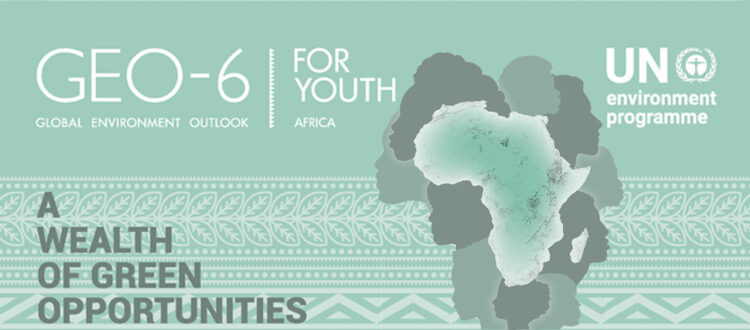Global Environment Outlook for Youth – Africa
The United Nations Environment Programme’s Sixth Global Environment Outlook (GEO-6) for Youth: Africa is substantively built on the GEO-6 Regional Assessment for Africa. Development of the report brought together young people from all of Africa’s sub-regions, and solicited inputs from over 100 youth writers, photographers, artists, and reviewers from 30 African countries. The final report was launched at the 17th Ordinary Session of the African Ministerial Conference on the Environment, Durban, South Africa, 11-15 November 2019. Their inputs encompassed ideas, insights, analyses, and experiences about the potential of Africa’s natural resources to generate multi-sectoral green jobs. Serving on the advisory board of the report, CEDARE also assisted in coordinating the production of the report, editing and layout, authoring a chapter, preparing outreach materials, and hosting meetings.
Partners
United Nations Environment Programme (UNEP)
Region / Country
Africa
Objectives
- To educate, engage and empower African youth on environmental issues relevant to the region by developing a customized GEO report for this demographic.
- To synthesize key findings on the state of the environment in Africa in a youth-friendly format.
- To disseminate environmental knowledge to African youth audiences.
- To build capacity among African youth for implementing climate action and sustainable development.
- To increase youth participation and voices in environmental decision-making in Africa.
Timeline
From – To 2018 – 2019
Outcomes
- Consolidated, reviewed, edited, and laid-out report by African youth authors based on the GEO-6 Regional Assessment for Africa.
- First Authors meeting GEO for Youth Africa, Cairo, Egypt, 13-14 March 2018
Publications/website/portal
UNEP (2019). GEO-6 for Youth Africa: A Wealth of Green Opportunities. Nairobi: United Nations Environment Programme. Available at: http://unep.org/report/geo6-youth-africa
Relevance to SDGs
These outcomes would support SDG 4 (Quality Education) and SDG 13 (Climate Action) by disseminating key findings on the state of environment in Africa to youth audiences. Improving environmental education and access to knowledge for youth assists in building capacity for implementing climate action and achieving sustainable development.

